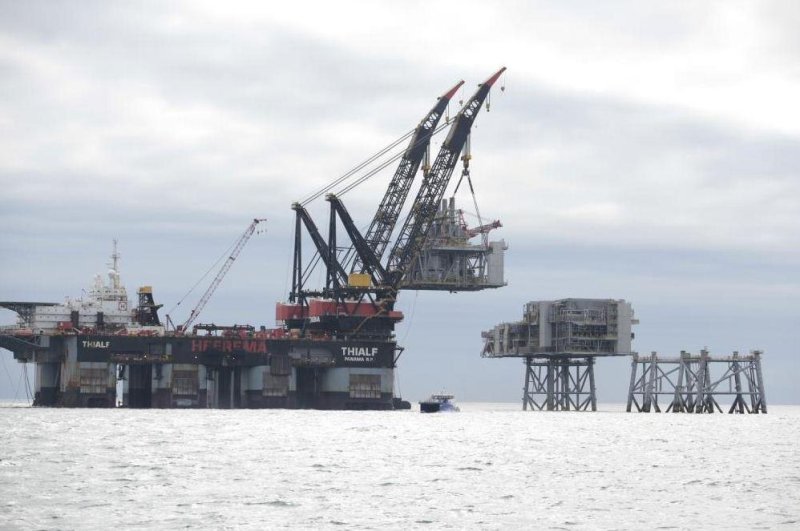The British government said its offshore oil and gas sector was back in action following an auction that gave awards to more than 50 different companies. Photo courtesy of BP
May 23 (UPI) -- The British government declared success in its latest offshore auction, but the devil may be in the details given the prospects for production declines.
The British Oil and Gas Authority awarded 123 licenses to 61 different companies in its 30th offshore licensing round on Wednesday.
The British continental shelf holds an estimated 1.5 billion barrels of oil equivalent in potentially commercial, but as yet undeveloped, reserves. The government said the latest licensing round could help unlock 320 million barrels of those oil and gas reserves.
Given the results, Andy Samuel, the chief executive at the authority, said the British continental shelf, after years of field declines, is back.
"Big questions facing the basin have been answered in this round. Exploration is very much alive with lots of prospects generated and new wells to be drilled," he said in a statement. "The results show a great diversity of active players from supermajors to new (companies)."
The results show supermajors and majors like Royal Dutch Shell, BP and Equinor, formerly Statoil, are still interested in British offshore prospects. New entries include emerging companies like Chrysaor.
According to Kevin Swann, a regional analyst for consultant group Wood Mackenzie, the results of the auction were indicative of success. There is, however, more work to do as the British government is behind the curve when it comes to releasing key data about the reserves in question.
"We're fast approaching the middle of 2018 and only two exploration wells have been drilled so far," he said in comments emailed to UPI.
The mixed sentiment follows a decision from BP to cut its workforce in its global exploration and production sector by about 3 percent, or around 540 payrolls. The company said the changes are part of an ongoing effort to streamline its business following $50 billion worth of divestments in recent years.
In response to emailed questions, a company spokesman said BP remains committed to developing exploration and production opportunities. Whenever possible, he added, those employees targeted in the headcount reduction will be reassigned elsewhere within BP units.
BP last month committed to developing the Alligin and Vorlich prospects in British waters, both of which are close to existing floating production infrastructure. At their peak, they'll churn out around 30,000 barrels of oil equivalent per day and production is expected in 2020.
Deirdre Michie, the chief executive at trade group Oil & Gas U.K., said the new offshore licenses should be pursued "with a sense of urgency" given the prospects for production declines beyond 2020.
"I'm optimistic that this can happen given that much of the acreage lies within reach of existing infrastructure, our development costs have reduced, our commercial behaviors are improving and our basin continues to be one of the most fiscally competitive in the world," she said in a statement.















